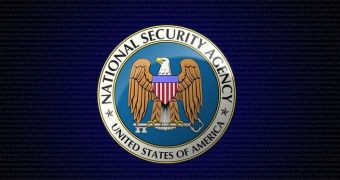The sky isn’t falling, says Michael S Rogers, the new NSA director, talking about the world after Edward Snowden.
In an interview for the New York Times, the newly installed director mentions that some terrorist groups have altered their communications to avoid surveillance techniques unveiled by the leaked documents from Edward Snowden, but all in all, the damage isn’t too bad.
Furthermore, Rogers believes that in the long run, as technology progresses, the NSA will find ways to compensate for what has been done, meaning new ways for the agency to spy on the world.
Even so, he’s likely to avoid any leak of the sort to ever happen again. While he is not 100 percent sure that NSA’s systems can’t be compromised from the inside, he’d like to ensure that the volume of data taken by Snowden can’t be stolen again.
The most important step, perhaps, has been imposing a “two-man rule,” which requires two-system operators to enter codes to gain access to sensitive data.
Snowden may have shown the world what the NSA can do, but the new director isn’t panicked, setting a contrasting attitude from the American political leaders and even intelligence professionals. After all, Keith Alexander has considered the leaks to be the greatest damage to the nation’s intelligence systems.
As for the world leaders that the NSA spies on, things haven’t changed too much. Rogers has admitted that the agency has been instructed not to collect data on certain targets, but they’re probably more than half a dozen, rather than the hundreds we all hope for.
We can all name one target off this particular list as it is already known that the White House has ordered the intelligence agency to stop listening in on German Chancellor Angela Merkel, whose phone had been under surveillance for the past decade.
The fact that that the NSA was told to back off and stop snooping in or monitoring only half a dozen world leaders is likely to have an even deeper impact on the diplomatic relationships of the United States.
According to leaked documents, the NSA has data contacts from dozens of world leaders from a single source, while others were invited to pitch in with whatever phone numbers they had. This means that there could be hundreds of people on the agency’s list of targets. Under these circumstances, cutting out “about” 6 people is nothing.
Furthermore, in the case of Angela Merkel, it’s been reported that the NSA started spying on her most trusted advisors after direct surveillance was stopped, which means that the same could have happened on the other occasions too.

 14 DAY TRIAL //
14 DAY TRIAL //